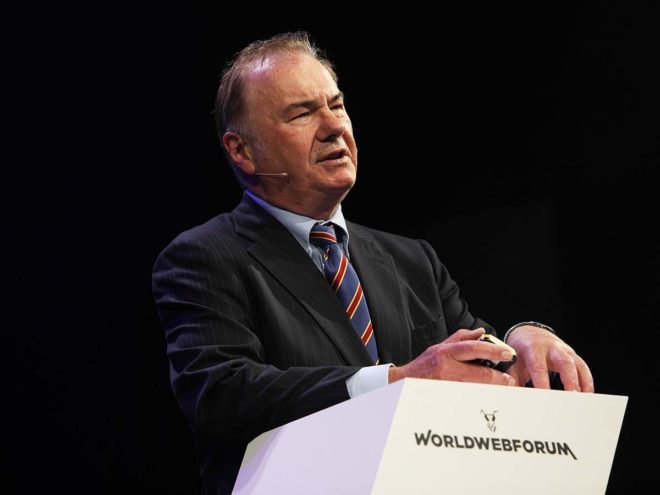Worldwebforum 2018 in Zurich: success for "the other WEF".
The sold-out Worldwebforum 2018 was a worthy "edition" - after all, this event is also referred to as "the other WEF". Judging by the quality of the speakers, this is by no means far-fetched.

A remarkably relaxed Federal Councillor Johann Schneider-Ammann opened the Worldwebforum 2018 and spoke on this year's conference theme "End of Nation". He did not support the end of the nation state for two reasons: on the one hand, Schneider-Ammann said with a wink, because he did not want to criticise his employer (and he needs his job, like we all do). In his remarks, however, he also stressed that a nation was not an abstract vessel, but very much helped to represent and secure aspects such as culture, values, and belonging for people. Rhetorically, he then asked the audience: "Would you feel comfortable with a Google Passport? Or would you like to be a citizen of Amazon?"
Digitization has come
en to stay
The subsequent presentations did not present any stunningly new ideas, but one thing stood out: That similar statements from previous years are becoming more and more concrete and underline the full force and dynamics of digitalization. One speaker compared the digital transformation with the earth's gravity and said that there were still people who wanted to fight against this "digital gravity".
The presentation by Lino Guzzella, President of ETH Zurich, made it clear that Switzerland as a country has the best prerequisites for mastering the digital transformation. The national innovative power, the economic strength and the high quality of the educational institutions would basically put Switzerland in a good starting position. At the same time, Guzzella - like other speakers - pointed out that federal inertia and the frequent lack of willingness to take risks are serious stumbling blocks to prosperous development. He saw the role of his ETH as preparing graduates for careers in flexible, increasingly uncertain economic systems.
Learning the joy of failure
The joy of failure - as proclaimed repeatedly by Elon Musk of Tesla, for example - is definitely not yet part of the Swiss DNA. How could that change? A passionate appeal came from Nancy Pfund, an experienced Silicon Valley investor: using the example of e-car maker Tesla, she made it clear that her selection methods for venture investments are viable and robust. As early as 2006, she had supported the company, factored in the risk of failure - and focused on long-term success rather than short-term success. This requires courage, trust and sometimes staying power.
"Parks, not parking lots"

David Le from Lyft in San Francisco, Uber's biggest competitor, made it clear what "sense contribution" a sharing company like Lyft makes. In doing so, he also made it clear that the next phases of mobility - especially in urban conurbations - are preordained. The next big trend, he said, is the breakthrough of electric mobility, first in vehicles owned by individuals. After that would come self-driving vehicles, which would only be used as a service, but no longer owned. This would solve the traffic chaos in cities and at the same time give substantial parking space back to city dwellers in the form of green parks.
"Compromising kills innovation"
The topic of innovation was undoubtedly a much-discussed one at Worldwebforum 2018. Glenn Gore from Amazon Webservices had an apt quote: "Compromising kills innovation". By this he meant that in day-to-day business, a constructive culture of dispute with winners and losers was essential if individual companies were to move forward. The "harmony-seeking Swiss" should pay particular attention to this. Another speaker told the audience that Switzerland and Europe needed more managed chaos to stimulate innovation. It will be exciting to take stock of this at the Worldwebforum in January 2019.
*Christoph Oggenfuss, Front Office Architect, CE-Owner markITing ag Zurich.









